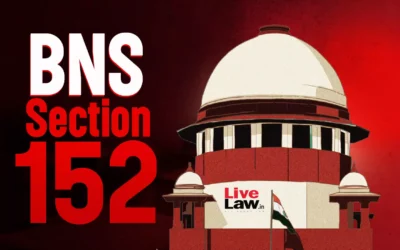BNS Section 257 – Public servant in judicial proceeding corruptly making report, etc , contrary to law
The Indian Penal Code (IPC) Section – 219
Understanding BNS Section 257: Public Servant Corruptly Making Reports or Decisions Contrary to Law
Judicial proceedings rely on the integrity and impartiality of public servants to ensure justice is served. However, when a public servant corruptly or maliciously makes reports, orders, verdicts, or decisions contrary to the law, it undermines the legal system. Section 257 of the Bharatiya Nyaya Sanhita (BNS) addresses this issue. Let’s break it down in simple terms.
What Does Section 257 Say?
Section 257 deals with the act of a public servant corruptly or maliciously making or pronouncing any report, order, verdict, or decision in a judicial proceeding that they know is contrary to the law. Here’s what the law states:
- Offense: If a public servant, during any stage of a judicial proceeding, corruptly or maliciously makes or pronounces any report, order, verdict, or decision that they know is contrary to the law, they commit an offense.
- Punishment: The punishment for this offense can include:
- Imprisonment for up to 7 years,
- A fine, or
- Both imprisonment and fine.
Key Points to Understand
| Aspect | Details |
|---|---|
| What is the Offense? | A public servant corruptly or maliciously makes or pronounces a report, order, verdict, or decision contrary to the law in a judicial proceeding. |
| Punishment | Up to 7 years in jail, a fine, or both. |
| Cognizable or Not? | Non-cognizable: Police cannot arrest without a warrant. |
| Bailable or Not? | Bailable: The accused can seek bail. |
| Court Jurisdiction | Trial is conducted by a Magistrate of the first class. |
Why is This Law Important?
- Ensures Integrity in Judicial Proceedings: It holds public servants accountable for maintaining fairness and legality in judicial processes.
- Prevents Corruption and Malice: It discourages public servants from acting corruptly or maliciously in their official duties.
- Protects Justice: It ensures that judicial decisions are made in accordance with the law, safeguarding the rights of individuals.
Examples of Offenses Under Section 257
- Example 1: A judge knowingly delivers a verdict that is contrary to the law due to personal bias or corruption.
- Example 2: A public prosecutor intentionally submits a false report to influence the outcome of a case.
- Example 3: A court officer maliciously issues an order that violates legal procedures to benefit a particular party.
Conclusion
Section 257 of the BNS is a crucial provision to ensure that public servants involved in judicial proceedings act with integrity and adhere to the law. Corruptly or maliciously making reports, orders, verdicts, or decisions contrary to the law is a serious offense. Always act responsibly and uphold the principles of justice.

